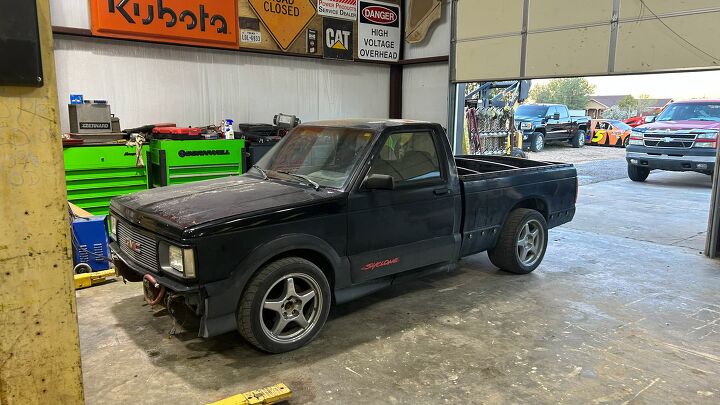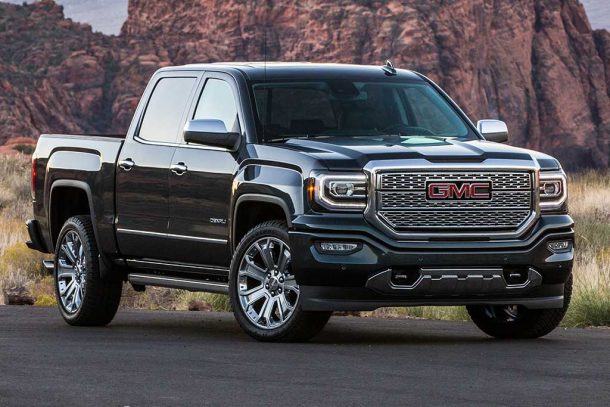#StolenCars
Stolen GMC Syclone Returned to Owner By Unknowing Buyer
Buying things from private parties can be risky. Even if you’re sure that you’re purchasing a legitimate, genuine product, exchanging any amount of money with a stranger is no fun. One Texas man recently had a terrible experience buying what he thought would become his dream car, only to discover his new purchase was a stolen vehicle.
The Dodge Charger SRT Hellcat Was By Far the Most-Stolen Car of the Last Three Years
We’ve been hearing a lot about Hyundai and Kia car thefts, as some older models lack electronic immobilizers, but as it turns out, they’re nowhere near the most frequently stolen cars in America. The Insurance Insititute for Highway Safety’s (IIHS) Highway Loss Data Institute (HLDI) division recently released its list of the most stolen vehicles from model years 2020-2022, and the top models wear Dodge badges.
Summer of Theft Creating Bad Publicity for Hyundai, Kia
Following an internet trend that proliferated on TikTok over the summer, there’s been an alleged surge of vehicle thefts targeting Kia and Hyundai products. The issue reportedly began with a video tutorial recorded in Milwaukee showing how to steal the cars by shoving a connected USB cable into a cracked-open ignition. But the resulting problem has spread to major cities across the country, often with rowdy teens – known as “ Kia Boyz” – taking random cars for little more than joy rides.
Auto Theft Becomes Fashionable Again, Most Stolen Vehicles of 2020
Car theft has been trending downward over the last couple of years. According to data from the Insurance Information Institute, 2019 represented a 4-percent decline in thefts across the United States vs the previous annum. But things look even better when you zoom out. The Federal Bureau of Investigation estimates that automotive transgressions have fallen by 64 percent since 1993, mimicking the general trajectory of property and violent crimes within that timeframe.
Unfortunately, crime is back on the rise and vehicle theft is coming along for the ride. Let’s explore the how and why before determining if your personal ride happens to be a preferred target. Then we’ll get into what you can do about it because the latest statistics are pretty disheartening.
NICB Says Auto Theft Down for 2018, Lists Most-stolen Models
The National Insurance Crime Bureau (NICB) released its annual Hot Wheels report this month. The good news is that auto thefts declined in 2018, according to the FBI.
The bad news? NICB is still doing a running tally of all the rides ripped away from their owners, putting the 2000 model-year Honda Civic on top. It was followed closely by the 1997 Honda Accord. Fortunately, the NICB also kept track of the 2018 model year specifically, proving that the nation’s most-stolen automobiles continue to be the ones that sell the best.
Four Arrested in Tesla Theft: Dirty Crooks or the Ultimate EV Fans?
A quartet of suspected baddies were arrested on Friday after being caught with four vehicles believed to be stolen from a Tesla dealership in Salt Lake City. While an automotive theft ring isn’t anything special, the way in which this particular incident unfolded is beyond strange.
According to South Salt Lake police detective Gary Keller, the incident began around 1 a.m. when a Highway Patrol trooper conducting a traffic stop near the dealership noticed a sparkly new Tesla vehicle stop behind his squad car. Smelling something fishy, the patrol trooper assumed the driver wasn’t the owner of the car and called for local backup as he conducted another stop.
Keller said the man had a bag of keys on his person and told police he had come to return the vehicle to the dealership. “I don’t know if he had a guilt complex or whatever, but he claimed his name was Tesla and once [police] started talking to him, he didn’t want to talk to police; he wanted an attorney,” Keller explained.





















Recent Comments